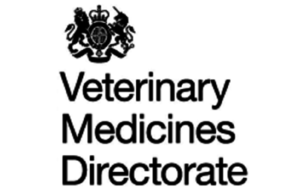UK veterinary antibiotics sales more than halved over the past six years
Positive results are testament to the cooperation between the farming industry, the veterinary sector and government

The use of antibiotics in livestock in the UK has fallen again, according to a report released by the government’s Veterinary Medicines Directorate (VMD) today.
Last year saw another drop in the use of antibiotics in food-producing animals, meaning that the UK now has one of the lowest levels of antibiotic use in Europe, having reduced by 52% in just six years between 2014 and 2020. Overuse of antibiotics in livestock threatens both animal and human health, as the efficacy of life-saving medicines is reduced if bacteria become resistant to antibiotics.
Antimicrobial Resistance (AMR) is recognised as one of the biggest threats to both human and animal health at a global level. It occurs when microorganisms that cause infection change over time, and no longer respond to medicines which would normally kill or stop their growth - making infections harder to treat.
The main driver of resistance is antibiotic use. As such, it is crucial to use them responsibly, and to reduce unnecessary use of antibiotics, especially Highest Priority Critically Important Antibiotics (HP-CIAs) - which are vitally important for human medicine - in animals. This is the sixth consecutive year of declines, giving a total reduction of 79% since 2014, and they now account for only 0.5% of the total antibiotic sales in 2020.
The UK-Veterinary Antibiotic Resistance and Sales Surveillance (UK-VARSS) annual report shows the second lowest-recorded amount of antibiotics sold for use in food-producing animals, at 30.1 mg/kg: less than half the levels recorded in 2014. Since 2019, reductions in antibiotic use were reported by the pig, chicken, turkey and gamebird sectors.
According to internationally recognised indicators, the UK has achieved some of the lowest levels, and biggest reductions, in resistance in livestock across Europe. E. coli carrying resistance genes to HP-CIAs continue to decrease.
The report demonstrates how the UK continues to maintain effective antibiotic stewardship in our livestock sectors, and ensures that these life-saving medicines are used responsibly to preserve their efficacy in human and veterinary medicine. Resistance is promoted any time an antibiotic is used. The substantial reductions in antibiotic use achieved by the livestock sectors and veterinary profession are likely to be behind the decreasing levels of resistance we are seeing.
The UK’s success in reducing antibiotic use means that it is a major European leader in this area with a significant livestock farming industry. These successes have been achieved through a collaborative approach between government, industry, farmers and veterinary professionals.
Tackling antibiotic usage is an important part of the government’s “One Health” approach to public health. It is essential to recognise the complex interdependencies between the health of people, animals, plants and the natural environment, and the need to combat threats holistically.
Abigail Seager, Chief Executive of the Veterinary Medicines Directorate, said:
Working closely with the farming industry and the veterinary profession, we have achieved huge reductions in the use of antibiotics since 2014 and we are seeing reductions in resistance as well.
These successes are testament to the cooperation between farmers and vets in promoting the responsible use of antibiotics.
Christine Middlemiss, the UK’s Chief Veterinary Officer, said:
This year’s VARSS report shows how the UK continues to make important reductions in antibiotic use in livestock across the board.
It is encouraging to see farmers and vets continuing to work together to tackle antibiotic resistance through the responsible use of antibiotics, which in turn protects human health as well as reducing the burden of disease in animals. We are committed to protecting animal health, and we will continue to work closely with industry and the veterinary profession on this important issue.
Working together to achieve effective antibiotic stewardship is a key aim of the Targets Task Force, a collection of specialised vets, chaired by the Responsible Use of Medicines in Agriculture alliance (RUMA) which aims to promote high standards of food safety, animal health and responsible use of medicine in farm animals.
The Government welcomes the 2021 Target Taskforce Report which summaries progress made against the targets set last year.